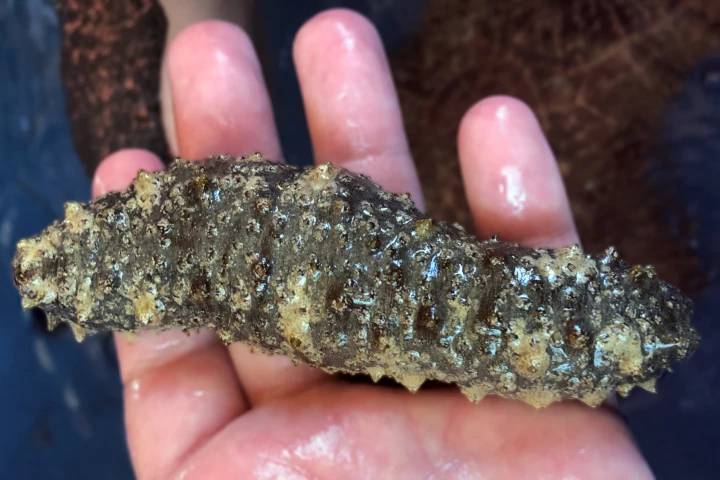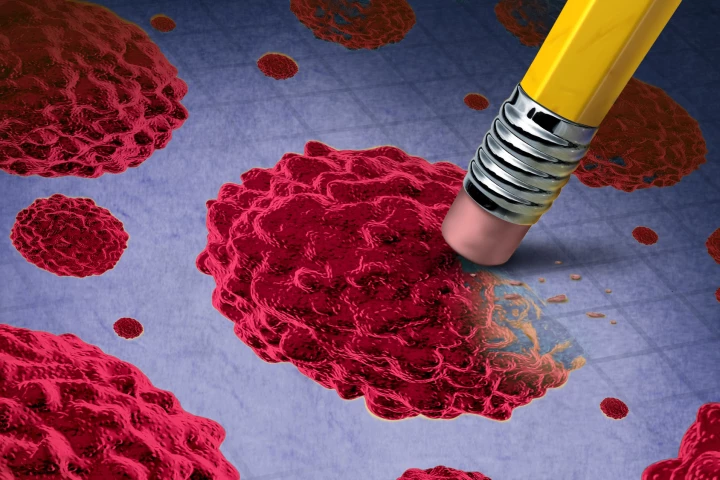Cancer
The latest scientific research and clinical treatment advances for many different types of cancer.
Top News
-
Hugely promising cancer immunotherapy drug dostarlimab is one step closer to being widely available, after the Food and Drug Administration granted it Breakthrough Therapy Designation status that, if successful, will expedite its path to market.
-
Working with a line of colon cancer cells, Korean researchers figured out a way to throw a few genetic switches to cause the cells to revert back to a healthy state. The technique could have major implications in the way we approach cancer treatment.
-
Researchers have discovered a particular type of cancer cell that relies on its own biological electric utility company to thrive. Disrupting this power plant – with the help of a puffer fish – showed a breakthrough way to fight the tumors.
Load More
Latest News
-
June 30, 2025 | Bronwyn ThompsonThe fungus thought to have claimed the lives of several excavators at Tutankhamun's burial site has had an image makeover, with scientists discovering that it holds potent cancer-fighting properties. It opens the door to new fungi-based medicines.
-
June 13, 2025 | Bronwyn ThompsonA promising new treatment to combat "undruggable" cancers has been green-lit for a human trial. It's hoped the novel drug will be able to stunt the growth and enable the effective treatment of cancers driven by the MYC oncogene and its MYC protein.
-
June 12, 2025 | Bronwyn ThompsonWe could be on the verge of a major cancer breakthrough, with a new nanoparticle-based vaccine reportedly obliterating pancreatic cancer cells in preclinical trials. This success now takes it a step closer to a first-of-its-kind human trial.
-
June 10, 2025 | Paul McClureThe sea cucumber naturally produces a sugary compound that inhibits an enzyme that’s instrumental in stimulating cancer growth, according to a new study. The next step is to find a method for producing the compound in large quantities.
-
June 02, 2025 | Bronwyn ThompsonA landmark study has found that a workable exercise plan significantly improves survival and health of people who have survived colorectal cancer. So much so that, as one researcher notes, "Our findings will change the way we treat colon cancer."
-
May 26, 2025 | Paul McClurePositive results from trials of an immune therapy in dogs with bone cancer have been used to fast-track the development of the drug to treat children with the same cancer. It highlights how leveraging our genetic similarity can advantage both species.
-
April 26, 2025 | Nick LavarsA compound derived from a Himalayan fungus has been refined by scientists for a chemotherapy drug with powerful anti-cancer effects. NUC-7738 is yielding encouraging results in ongoing Phase 2 clinical trials, and is advancing towards approval.
-
April 19, 2025 | Bronwyn ThompsonThis week a study set off alarm bells, estimating that the overuse of computed tomography – or CT – examinations could result in five per cent of new cancers disagnoses annually. Since 2007, the use of the imaging technology has risen 30% in the US.
-
March 20, 2025 | Bronwyn ThompsonIn what's expected to soon be commonplace, artificial intelligence is being harnessed to pick up signs of cancer more accurately than the trained human eye. This latest AI model has a near 100% success rate and serves as a sign of things to come.
-
March 09, 2025 | Paul McClureWhen experienced researcher Renato Aguilera happened across the chemical structure of a tried-and-true antimalarial drug, he thought it might effectively fight cancer. He was right, and he has the research, the patent, and the pharma company to prove it.
-
February 23, 2025 | Michael IrvingScientists at Oregon Health and Science University (OHSU) have developed a new blood test for pancreatic cancer, one of the most deadly forms of the disease. Tests showed up to 85% accuracy in detection, even in early stages.
-
February 09, 2025 | Michael IrvingOne of cancer’s deadliest tricks is its ability to spread to other organs. An existing cardiac drug has now been found to reduce the risk of metastasis by dissolving circulating clusters of breast cancer cells in patients.
-
January 27, 2025 | Paul McClureA phase 3 clinical trial has shown that adding an immunotherapy drug to chemotherapy almost doubled the cure rate for patients with the most common kind of breast cancer. The findings suggest that a new treatment paradigm should be adopted.
-
January 26, 2025 | Paul McClureResearchers have discovered how a particular protein affects the growth and spread of colon cancer in humans. The study not only improves our understanding of why this type of cancer can be aggressive in some people, but it also highlights a potential treatment target.
-
January 09, 2025 | Michael IrvingProstate cancer is usually treated with surgery and radiation therapy, but these can have drastic side effects. A new clinical trial is exploring the safety and efficacy of killing the cancer cells with a blast of steam.
Load More

















